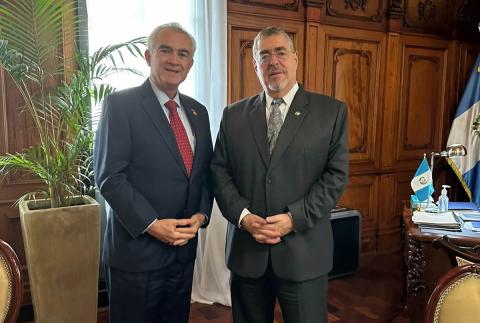Press Release
(28 September, 2010) The United Nations Economic Commission for Latin America and the Caribbean, guided by the principles and aims of the Charter of the United Nations and the Universal Declaration of Human Rights, and in the spirit of contributing to the debate under way in Chilean society over what has been termed the "Mapuche conflict", wishes to state as follows:
1. There exists today a special international legal regime concerning the rights of indigenous peoples, whose principal instruments are the United Nations Declaration on the Rights of Indigenous Peoples (2007) and the conventions of the International Labour Organization (ILO), particularly Convention 169 concerning Indigenous and Tribal Peoples in Independent Countries. From these international instruments derives a broad array of rights to which indigenous peoples are entitled, as well as the corresponding obligation of signatory States to promote and respect those rights.
2. It is universally recognized "that indigenous peoples have suffered from historic injustices as a result of, inter alia, their colonization and dispossession of their lands, territories and resources, thus preventing them from exercising, in particular, their right to development in accordance with their own needs and interests". (1)
3. Indigenous peoples in Latin America are no strangers to poverty and exclusion, as a result of a historical process of structural discrimination, which is now interpreted as a failure to recognize, promote, protect and guarantee their human rights.
4. Despite the legal and legislative progress made in Latin America on the rights of indigenous peoples in the past few decades, there is still a significant lag in the implementation of those rights, and Chile is no exception in this regard. Among the advances made, it is noteworthy that Chile is a signatory to Convention 169 concerning Indigenous and Tribal Peoples in Independent Countries, whose text imposes upon Governments the obligation to "consult the peoples concerned, through appropriate procedures and in particular through their representative institutions, whenever consideration is being given to legislative or administrative measures which may affect them directly".
5. It is important to take into consideration the reports, recommendations and declarations of the Special Rapporteur on the Situation of Human Rights and Fundamental Freedoms of Indigenous Peoples, James Anaya, particularly his declaration of 24 September 2010 (2), attached hereto.
6. ECLAC, which has recently argued that equality must be placed at the heart of the region's development agenda (3), places at the disposal of all parties its technical capacity for the preparation of studies or reports that could help to forge a greater understanding of the situation of the Mapuche people, whether from an economic, social, demographic, environment or gender perspective.
7. Lastly, we express the hope that the parties may arrive at a rapid solution that will avoid the loss of human life.
For enquiries, please contact ECLAC's Public Information and Web Services Section. Email: dpisantiago@cepal.org .
(1) United Nations Declaration on the Rights of Indigenous Peoples.
(2) Declaration of the Special Rapporteur on the Situation of Human Rights and Fundamental Freedoms of Indigenous Peoples, James Anaya
(3) See Time for equality: closing gaps, opening trails (LC/G.2432(SES.33/3)), 2010.


